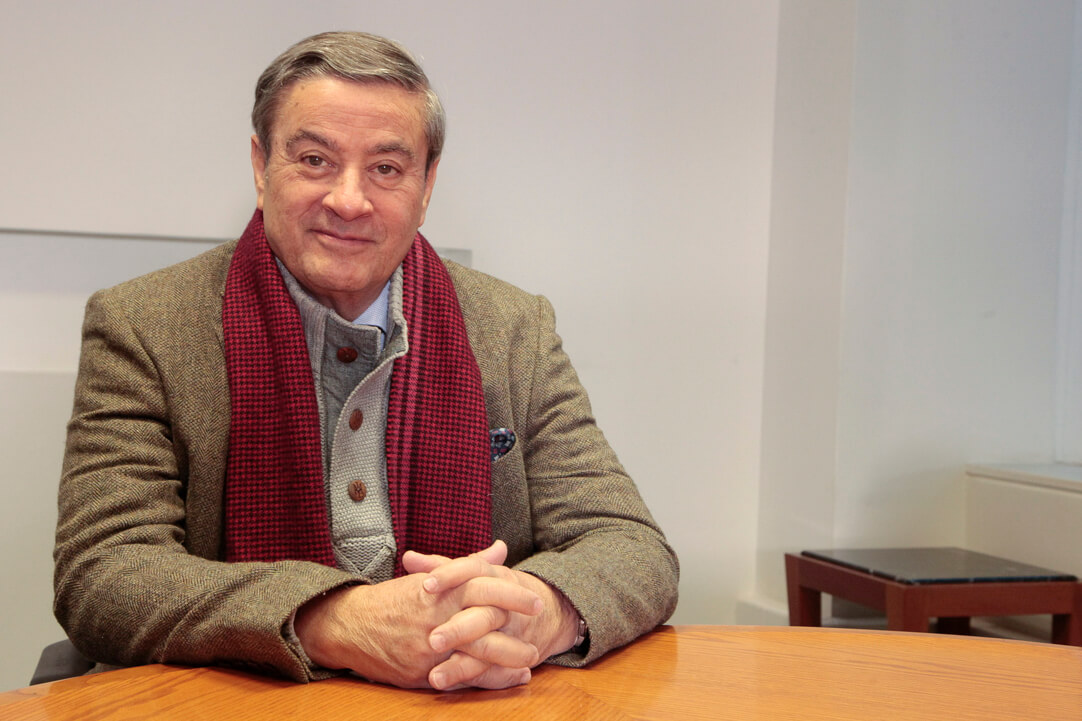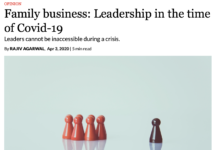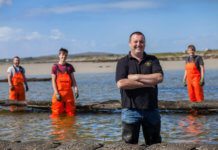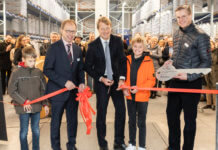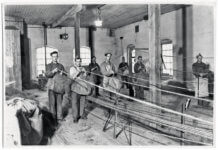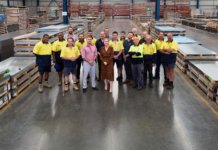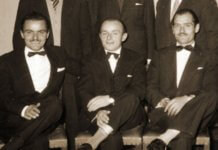Manuel Casanueva left a profitable career as a civil engineer to become an entrepreneur – a great risk which paid off. His venture, Grupo GTD, became the first major private entity in the Chilean telecommunications industry, coming up in a market where public corporations were the only suppliers.
Perseverance is an integral part of Casanueva’s success. Grupo GTD’s origins were modest: when the company was founded 40 years ago, Casanueva only had three employees. His technical knowledge in telecommunications was limited to dialling a telephone.
However, Casanueva never failed to innovate and continued to take risks in the name of expansion. His determination did not go unnoticed. Over the years, he garnered the attention of investors, which helped scale and expand Grupo GTD’s reach.
What was once a four-person operation has grown into an international carrier that employs more than 2,500.
Now, Casanueva is looking to the future once more, this time with a succession plan for his family. Already, all seven of his children play an active role in the family business. He envisions Grupo GTD continuing its growth, expanding into new regions and diversifying its technological portfolio under the auspices of the next generation. We sat down with Manuel Casanueva to hear his founder’s perspective.
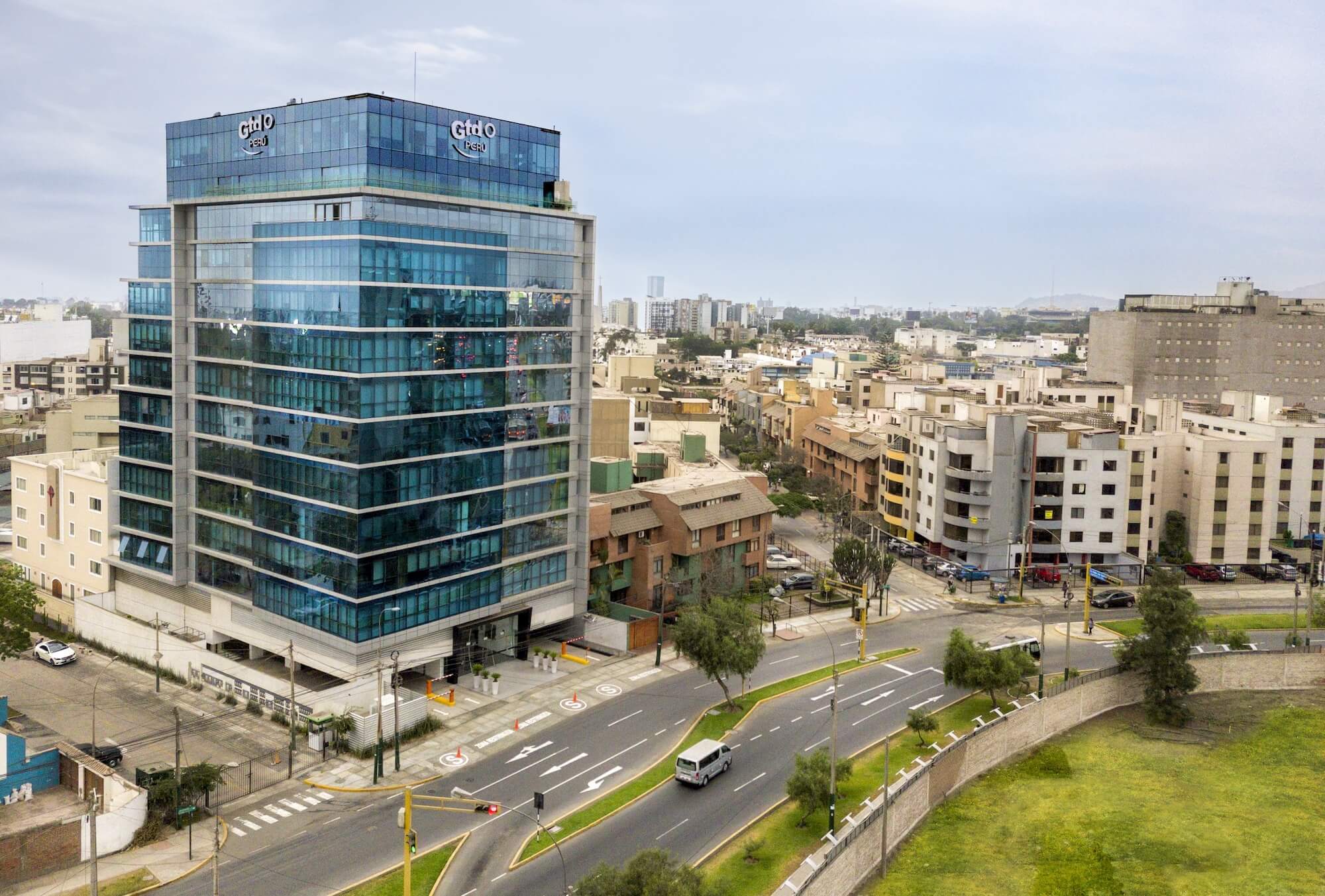
How did you gain footing in an industry with such high barriers to entry?
Back then, the barriers weren’t quite as high as they are now – the technological aspect was more accessible and less esoteric. Also, we had help.
When we began, the market was not prepared for private entities, which was advantageous in its own way. We relied heavily on state support. In Chile, the Sub-Secretary of Telecommunications is the body that regulates the industry. Their assistance was indispensable during our building phase.
Soon after, we started getting international attention. Pacific Telecom, a subsidiary of Seattle’s Pacific Power, expressed interest in purchasing our company.
We optioned to sell them a 90 per cent stake while retaining sole management. During the five years they were involved in the company, we grew exponentially thanks to their financial support.
Then, the CEO of Pacific Telecom divested because the region fell out of the company’s purview. I had three partners fill in the gap left by Pacific Telecom shortly thereafter.
This was a time of considerable competition in the Chilean market. Telefonica, an international supplier based out of Spain, held a convincing market share. My partners felt we should sell, but I wasn’t ready to let the time and effort I invested in the company go to waste.
Instead, I offered to buy their shares, which meant I was forced to borrow US$18 million on credit – a considerable sum by any means. At the time, our revenue was only US$1 million per year.
“Entrepreneurs have to take calculated risks to be successful.”
What changed when you became the sole owner?
I had many sleepless nights that first week as the sole owner of the company. We convened a family meeting and decided that we needed to alter our way of life. Fiscal responsibility took on an entirely new meaning; frugality became the norm.
Keeping our expenditures in check, the company began to grow. My former partners saw this, and I knew they were happy for me, but I sensed they regretted their decision to sell. Entrepreneurs have to take calculated risks to be successful.
How has Grupo GTD remained competitive in such a fast-paced industry?
We owe our competitive edge to our ability to innovate and incorporate change. In 1992, our infrastructure was limited to copper cables through city ducts used for communication between banks, their affiliates and businesses. We knew that we needed to expand our reach.
That same year, we started a local telephone company that incorporated long-distance services. In the mid-90s, we set up the first fibre optic network in Latin America. Today, we use strictly fibre optic cabling for all of our networks.
How else has this healthy non-averseness to risk served Grupo GTD?
Acquiring other companies, a strategy that’s proven indispensable to our growth, is not without risk.
Telefonica del Sur, the incumbent provider of southern Chile, is one of our most recent acquisitions. The company was owned by a predominantly Chilean family who was preoccupied with their other holdings. So, we offered to buy the company for US$150 million. To put that into perspective, US$150 million was Grupo GTD’s valuation at that time. It was another risk, but the reward has been substantial.
“Currently, I still manage and make the principle decisions, but a clear pathway to succession is in place, one which sees the group remain family-owned – something we are all committed to.”
When did you officially start considering this a family business?
My family has been involved in the company from the start, and we’re a big family. I have seven children and 26 grandchildren. Often, they spend their vacations at the company doing paperwork or helping our technicians.
Because of this exposure at an early age, they know all of the supervisory work and have built close relations with our employees.
Being able to rely on family is incredibly important. In 2011, I suffered a stroke from which I’ve recovered fully. In the interim, however, my son-in-law stepped up and showed he was more than capable of maintaining the business through my convalescence. He became General Manager of the company in 2012, and since then, all of our margins have doubled – a testament to his remarkable abilities.
Now, my two sons are members of the board. My daughters have almost all married, and our in-laws make up part of our Committee of Investments for the family.
Our family council, however, consists of only our immediate family, and this decision was made together with my children. Our council meetings occur regularly and are chaired by my eldest son, who is based out of France. Perhaps next year, my other son will take on that duty.
My health scare made me see that succession is an issue to be dealt with in the present, not some far distant future. I want my children to succeed me. Currently, I still manage and make the principal decisions, but a clear pathway to succession is in place, one which sees the group remain family-owned – something we are all committed to.

We are also dedicated to philanthropic work, which is another aspect of succession – legacy. Recently, one of our foundations opened a museum of telecommunications in downtown Santiago, based out of my grandparents’ old house. Another telecommunications museum is planned in Valdivia, South Chile, and is being built by another one of our family foundations.
I recently spoke to the mayor of Santiago regarding a heritage theatre, which is currently operating at a deficit. We are happy to step in and maintain the institution for the community. Aside from our work in the arts, our foundations also support at-risk youth and the elderly. We believe that people with the means to do so must give back as much as possible.
“Regardless of their role in the organisation, I want my children to learn to take risks. Seeing their decisions pan out for better or worse is experiential learning, and it will help them build their instincts and confidence.”
How has the leadership style in the family business changed as it has grown over the years?
Our approach to leadership has changed out of circumstance. Aside from the support of my wife, I was alone at the critical junctures of our company’s growth. It can be a difficult burden to bear.
Now, thankfully, my children can look to each other for support. They consult with each other and often make executive decisions as a group, which is useful because of their diversity of insight. That said, there has to be a balance. Currently, my eldest son is the General Manager and sometimes, he looks to his siblings and me for advice when he should be acting unilaterally. So, I am encouraging him to take more of a leadership role in decision-making and reduce consultation.
Regardless of their role in the organisation, I want my children to learn to take risks. Seeing their decisions pan out for better or worse is experiential learning, and it will help them build their instincts and confidence.
What are the key priorities for Chilean family businesses moving forward into a fast-paced economic future?
Improving governance is something that comes immediately to mind. Chilean companies are more or less well-run, but there is room for improvement structurally. Doing so will potentially enable them to improve and expand their offering.
Also, Chilean companies that haven’t already done so should consider internationalising, for more than just the obvious reasons. There is much to be said for getting out of your comfort zone. I’ve found that international engagement with other entrepreneurs is a vault of knowledge.
This potential to learn from others exists at home too. Entrepreneurially minded people should take part in regional organisations – I’ve been a part of several. The influence and connections made through groups like these cannot be understated. I’ve even purchased businesses from people I’ve met through these consortiums.
What do you hope to see in the company’s future?
Keeping the business within the family is an utmost priority, and of course, we hope it continues to enjoy the success it does currently. There have been countless opportunities to sell everything off and be set for life. Doing so, however, would have meant teaching my children values that I do not hold. There is more to life and business than the bottom line.
So, we retain the business and work tirelessly to innovate and diversify. Currently, we have our eyes set on expanding to two or three other regions. Even locally, we are still taking calculated risks. We are in the process of expanding our fibre optic network over a stretch of 3,500 kilometres. It is a lengthy, costly prospect, but one that positions us well for the future.
Continuing to strengthen our relationship with our employees is another priority. Without them, Grupo GTD would not be where it is today. We extend our gratitude through several initiatives, like our annual Christmas party and scholarships for their children. I wish to pay them in kind for their loyalty, because I am confident that, with the support of this extended family, our company will continue to prosper long into the future.


